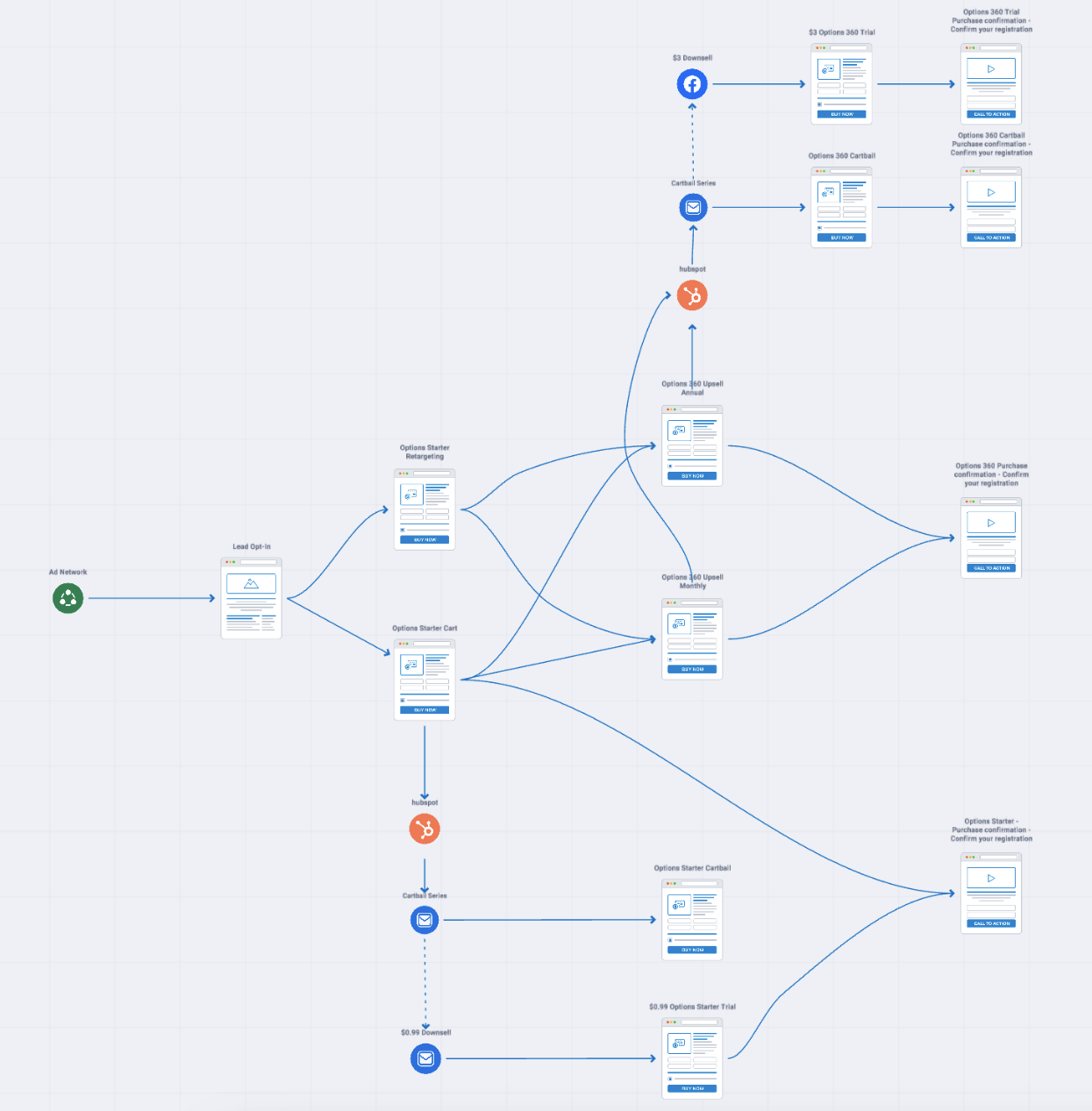In the world of online advertising, pay-per-click (PPC) campaigns have become an essential tool for businesses to reach their target audience and drive conversions. However, ensuring the success of these campaigns requires regular monitoring and optimization. This is where a PPC audit comes into play. By conducting a thorough review of your PPC account’s performance, you can identify areas for improvement and develop actionable insights that will ultimately boost your campaign’s effectiveness.
Understanding the Importance of a PPC Audit
Before delving into the intricacies of conducting a PPC audit, let’s first define what it entails. A PPC audit is a systematic evaluation of your pay-per-click advertising efforts, focusing on identifying strengths, weaknesses, and areas of opportunity within your campaign.
When it comes to digital marketing, pay-per-click (PPC) advertising is a powerful tool that can help businesses drive targeted traffic to their websites and increase conversions. However, running a successful PPC campaign requires more than just setting up ads and bidding on keywords. It requires continuous monitoring, analysis, and optimization to ensure that your campaign is delivering the desired results.
Defining PPC Audit
In simple terms, a PPC audit involves a comprehensive assessment of your ad account, including its structure, performance, and overall strategy. By closely examining various aspects of your campaign, such as keyword selection, ad copy, landing page experience, and conversion tracking, you can gain valuable insights into its effectiveness.
Keyword selection is a critical component of any PPC campaign. By conducting thorough keyword research, you can identify the most relevant and high-performing keywords for your business. This ensures that your ads are shown to the right audience, increasing the chances of attracting qualified leads.
Ad copy is another crucial element of a PPC campaign. Well-crafted ad copy not only grabs the attention of potential customers but also compels them to take action. By analyzing your ad copy, you can determine whether it effectively communicates your unique selling proposition and encourages users to click on your ads.
Landing page experience plays a significant role in the success of your PPC campaign. A well-designed and optimized landing page can significantly improve your conversion rates. By evaluating your landing pages, you can identify any usability issues, optimize the layout and content, and ensure a seamless user experience.
Conversion tracking is essential for measuring the success of your PPC campaign. By setting up conversion tracking, you can track the actions users take after clicking on your ads, such as making a purchase, submitting a form, or signing up for a newsletter. This data allows you to gauge the effectiveness of your campaign and make data-driven decisions to optimize your ROI.
Why Conduct a PPC Audit?
There are several reasons why conducting a PPC audit should be a regular part of your digital marketing strategy. Firstly, it helps you identify underperforming areas and allows you to fine-tune your campaign to maximize results. By analyzing the data collected during the audit, you can identify keywords that are not generating enough clicks or conversions and make adjustments to improve their performance.
Additionally, an audit can uncover missed opportunities and leverage existing strengths to gain a competitive edge in the market. By analyzing your competitors’ strategies and industry trends, you can identify new keywords, ad formats, or targeting options that can give you an advantage. This allows you to stay ahead of the competition and make informed decisions to optimize your campaign.
Furthermore, a PPC audit ensures that you’re allocating your advertising budget wisely and optimizing your campaign for optimal performance. By identifying areas where your budget is being wasted or inefficiently spent, you can reallocate funds to high-performing keywords or campaigns. This helps you maximize your return on investment and achieve your marketing goals more effectively.
In conclusion, conducting a PPC audit is crucial for the success of your pay-per-click advertising efforts. It provides you with valuable insights into the strengths and weaknesses of your campaign, allowing you to make data-driven decisions to optimize your performance. By regularly auditing your PPC campaign, you can stay ahead of the competition, maximize your advertising budget, and achieve your marketing objectives.
Preparing for a PPC Audit
Before diving into the audit process, it’s crucial to prepare adequately. This involves gathering the necessary tools and resources, setting clear objectives for the audit, and considering other important factors.
Gathering Necessary Tools and Resources
There are various tools available to aid you in conducting a PPC audit. Google Ads and Bing Ads platforms themselves provide valuable data and insights that you can leverage. These platforms offer features such as keyword research tools, performance analytics, and ad campaign management capabilities.
In addition to the platforms themselves, third-party tools such as SEMrush or Moz can provide additional analysis and competitive intelligence to supplement your audit process. These tools offer advanced keyword research, competitor analysis, and performance tracking features that can help you gain deeper insights into your PPC campaigns.
Furthermore, it’s important to gather other resources such as historical campaign data, customer personas, and industry benchmarks. Historical campaign data can provide valuable insights into past performance and trends, while customer personas can help you understand your target audience better. Industry benchmarks can serve as a reference point to evaluate your campaign’s performance against industry standards.
Setting Clear Audit Objectives
When embarking on a PPC audit, it’s essential to define clear objectives that align with your overall marketing goals. Are you aiming to improve conversion rates? Increase click-through rates? Or optimize your budget allocation? Clearly defining these objectives will help guide your audit and provide a benchmark for evaluating its success.
Moreover, it’s important to consider other factors that may impact your audit objectives. For example, seasonality can influence the performance of your PPC campaigns. Understanding how different seasons or holidays affect your target audience’s behavior can help you set realistic objectives and make informed optimizations.
Additionally, competitor analysis should be part of your audit objectives. By analyzing your competitors’ PPC strategies, you can identify areas of improvement and potential opportunities for your own campaigns. This analysis can include evaluating their ad copy, landing pages, bidding strategies, and targeting techniques.
Furthermore, it’s crucial to consider the user experience when setting audit objectives. Are your landing pages optimized for conversions? Is your ad copy compelling and relevant? By focusing on improving the user experience, you can enhance the effectiveness of your PPC campaigns and achieve better results.
Overall, thorough preparation is key to a successful PPC audit. By gathering the necessary tools and resources, setting clear objectives, and considering other important factors, you can ensure that your audit is comprehensive and effective in optimizing your PPC campaigns.
Step-by-Step Guide to Performing a PPC Audit
Now that you’re equipped with the necessary tools and objectives, let’s dive into the step-by-step process of conducting a PPC audit.
Performing a PPC audit is crucial for optimizing your pay-per-click campaigns and ensuring that you’re getting the most out of your advertising budget. By thoroughly reviewing and analyzing various aspects of your PPC account, you can identify areas for improvement and make data-driven decisions to enhance your campaign’s performance.
Reviewing Account Structure
The first step in conducting a PPC audit is to assess the overall structure of your PPC account. This involves analyzing the organization of campaigns, ad groups, and keywords. A well-structured account allows for better control and optimization of your campaigns.
During the review, pay attention to the segmentation of your campaigns and ad groups. Are they organized in a logical and meaningful way? Ensuring proper segmentation and relevancy is critical for optimizing your campaign’s performance. By grouping related keywords and ads together, you can create more targeted and relevant messaging for your audience.
Analyzing Keyword Performance
Keywords lay the foundation for successful PPC campaigns. Analyzing keyword performance involves evaluating their relevance, search volume, and click-through rates. By understanding how your keywords are performing, you can make informed decisions about which keywords to prioritize and which ones to eliminate.
During the analysis, consider the search volume of your keywords. Are they attracting enough search traffic? Additionally, look at the click-through rates (CTR) of your keywords. Are they generating enough clicks? Identifying high-performing keywords and eliminating underperforming ones will help optimize your campaign’s overall performance.
Evaluating Ad Copy and Landing Pages
The effectiveness of your ad copy and landing pages can significantly impact your campaign’s success. Evaluating your ad messaging and landing page experience is crucial to ensure they are aligned with your target audience’s needs and expectations.
When evaluating your ad copy, consider factors such as clarity, relevance, and compelling calls-to-action. Is your messaging clear and concise? Does it speak directly to your target audience? Are your calls-to-action enticing enough to encourage clicks?
Similarly, assess your landing pages to ensure they provide a seamless and relevant user experience. Are they optimized for conversions? Do they align with the messaging in your ads? By optimizing your ad copy and landing pages, you can improve the overall performance of your PPC campaigns.
Assessing Conversion Tracking
Accurate conversion tracking is essential for measuring campaign success and ROI. It allows you to understand which actions on your website are leading to valuable conversions, such as form submissions, purchases, or phone calls.
During the PPC audit, make sure that your conversion tracking is properly set up and that you’re tracking the right actions. Verify that the tracking codes are correctly implemented on your website and that they are firing accurately. Identify any gaps or discrepancies in your tracking setup and address them accordingly.
Additionally, consider the attribution model you’re using for your conversions. Are you giving credit to the right channels and touchpoints along the customer journey? By accurately tracking conversions, you can make data-driven decisions and optimize your PPC campaigns for better results.
Interpreting PPC Audit Results
Once you’ve completed the audit process, it’s time to interpret the results and derive actionable insights.
Identifying Strengths and Weaknesses
Through your PPC audit, you’ll uncover both strengths and weaknesses within your campaign. Identify areas that are performing well and leverage them to your advantage. Simultaneously, address weaknesses and develop strategies to improve and optimize these areas for better outcomes.
Making Data-Driven Decisions
Don’t rely solely on assumptions or intuition when making decisions about your PPC campaign. Instead, leverage the data obtained from your audit to drive your decision-making process. Use the insights gained to adopt a more data-driven approach that enhances the effectiveness of your advertising efforts.
Implementing Changes After a PPC Audit
Your PPC audit will be in vain if you don’t take steps to implement the necessary changes identified during the process.
Prioritizing Actionable Insights
Based on the results of your audit, prioritize the changes and optimizations that will have the most significant impact. Tackle the most critical areas first, ensuring that you’re focusing on actionable insights that will lead to tangible improvements in your campaign’s performance.
Monitoring Performance Post-Audit
Once you’ve implemented the necessary changes, it’s crucial to monitor the performance of your PPC campaign closely. Continuously evaluate and refine your strategies to ensure that you’re making the most of your advertising budget and maximizing your campaign’s return on investment.
By following this structured approach to conducting a PPC audit, you can effectively optimize your campaigns, improve their performance, and achieve greater success in your online advertising efforts. Regularly reviewing and fine-tuning your strategies will keep you ahead of the competition and ultimately maximize your ROI.



